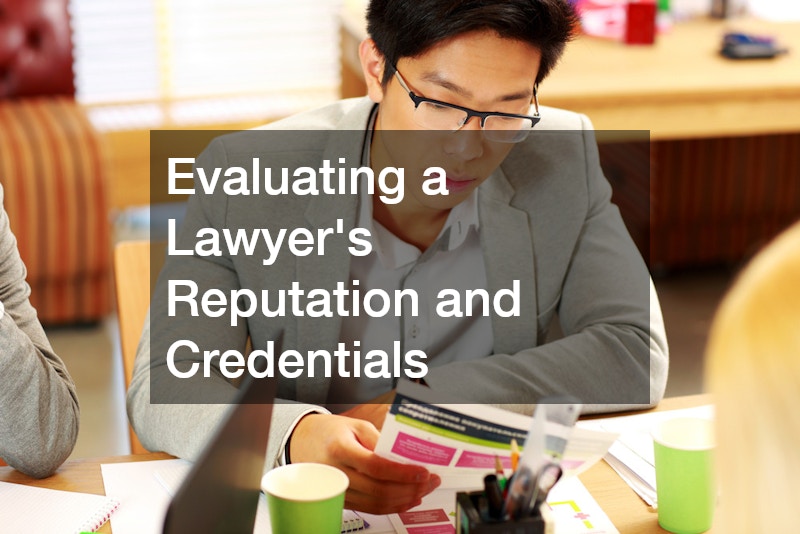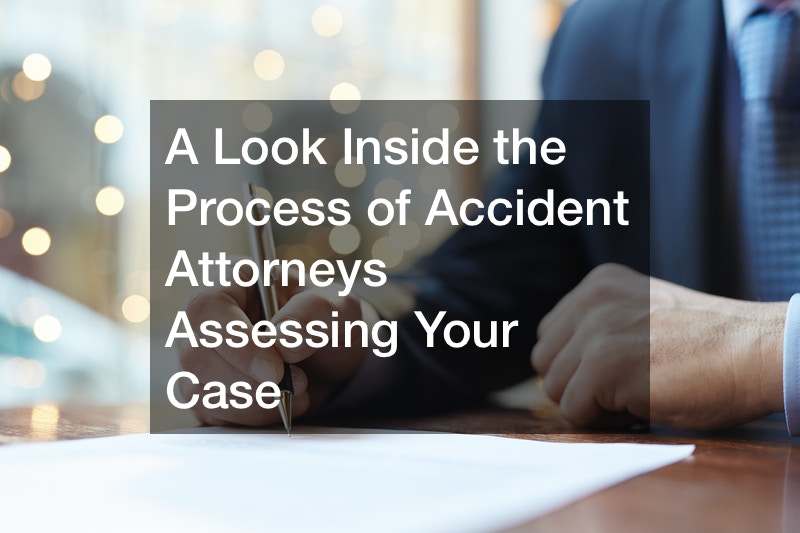
Finding the right lawyer for your legal issue can be overwhelming, but it’s one of the most important decisions you’ll make. Whether you’re facing a criminal charge, dealing with a personal injury, or navigating a divorce, the right legal representation can significantly impact the outcome of your case. This guide will walk you through the steps of choosing the best lawyer for your needs, while introducing key legal specializations such as criminal defense lawyers, accident lawyers, divorce attorneys, and more.
1. Types of Lawyers and Their Specializations

There are a variety of legal issues you might encounter, and it’s essential to understand which lawyer specializes in each area. Here are some common types of lawyers and the cases they handle:
Criminal Lawyers and Criminal Defense Lawyers
If you’re facing criminal charges, whether for a misdemeanor or a felony, a criminal lawyer or criminal defense lawyer is your best option. These professionals specialize in defending clients against criminal accusations, from theft to violent crimes and DWI offenses. Criminal defense lawyers have in-depth knowledge of the criminal justice system and will help you understand the charges against you, the potential penalties, and the best strategies for your defense.
Accident Lawyers and Personal Injury Lawyers
In the case of an injury due to someone else’s negligence, hiring a personal injury lawyer or an accident lawyer is essential. These attorneys focus on helping victims of car accidents, slip-and-falls, medical malpractice, and other accidents secure compensation for their injuries. A personal injury lawyer will navigate the legal process, negotiate with insurance companies, and ensure you receive the compensation you deserve.
Divorce Attorneys
Family law is a broad area, but when it comes to dissolving a marriage, divorce attorneys specialize in guiding clients through the legal process. Whether the divorce is contested or uncontested, these lawyers help with child custody, alimony, division of assets, and more. Hiring a skilled divorce attorney ensures that your interests are protected during what can be a challenging time.
2. Key Factors to Consider When Choosing the Right Lawyer
When selecting a lawyer, there are several important factors to consider to ensure you make the right choice:
Experience and Expertise
Choosing a lawyer with the right experience is crucial. For example, if you’re facing criminal charges for driving while intoxicated, hiring a DWI lawyer is a smart choice. These lawyers have expertise in handling DUI and DWI cases and will understand the intricacies of local laws. Similarly, for a personal injury case, a personal injury lawyer will have the knowledge and experience necessary to maximize your compensation.
Local Lawyers vs. National Firms
Another factor to consider is whether to hire a local lawyer or go with a larger, national firm. While national firms may have broad resources, local lawyers often provide a more personalized approach. They are familiar with the local courts and judges, which can be an advantage when navigating the legal system. Local lawyers also tend to have a better understanding of the community and its unique legal issues, which can work in your favor.
3. Evaluating a Lawyer’s Reputation and Credentials

Before hiring a lawyer, you’ll want to ensure they have the necessary qualifications and a solid reputation in the legal field.
Online Reviews and Testimonials
Online reviews are a great starting point. Look for feedback from previous clients regarding their experience with the lawyer. Whether it’s a criminal lawyer or a divorce attorney, client reviews can give you a sense of how effectively the lawyer handles cases and communicates with clients.
Certifications and Professional Associations
Be sure the lawyer you’re considering has the proper certifications and belongs to professional associations, such as the state bar. A will attorney, for example, should be licensed to practice estate law and have a history of creating and managing wills and trusts. Ensuring that your lawyer is well-credentialed provides peace of mind that you’re hiring someone who is qualified to handle your case.
4. Understanding the Service of Process and Legal Fees
It’s essential to understand the procedural aspects of your case as well as the financial commitment when hiring a lawyer.
Service of Process
The service of process refers to the legal procedure for delivering legal documents (like summons, complaints, or subpoenas) to parties involved in a case. Whether you’re working with a criminal defense lawyer or a personal injury lawyer, make sure your lawyer handles the service of process efficiently. This ensures that all parties are properly notified, which can avoid unnecessary delays in your case.
Cost and Payment Structures
Legal fees can vary depending on the lawyer’s experience, location, and the type of case. Many lawyers offer different billing arrangements, including hourly rates, flat fees, or contingency fees. For example, many accident lawyers work on a contingency basis, meaning they only get paid if you win your case. Be sure to discuss fees upfront and ask for a breakdown of potential costs to avoid surprises later on.
5. The Importance of Communication and Personal Rapport

Effective communication and personal rapport with your lawyer are vital to a successful relationship.
Communication Skills
When selecting a lawyer, it’s important to find someone who communicates clearly and keeps you updated on your case. This is especially crucial when working with complex cases such as a criminal defense, where the stakes are high. Make sure your criminal defense lawyer or accident lawyer is responsive and willing to explain legal jargon in a way that you can understand.
Personal Rapport
Your lawyer should be someone you feel comfortable with, especially when dealing with sensitive issues. Whether you are working with a divorce attorney or a will attorney, feeling at ease with your lawyer will make the process smoother. Trust and mutual respect are key to ensuring that you can share important details and that your lawyer will act in your best interest.
6. Local Paralegals and Support Staff: How They Play a Role in Your Case
In many legal matters, a local paralegal or legal assistant plays a crucial role in the background work. While they may not represent you in court, they help with the preparation of your case, managing paperwork, and coordinating with clients.
Role of a Local Paralegal
A local paralegal is an invaluable asset in managing the details of your case. For example, if you are involved in a personal injury case, a paralegal will assist your personal injury lawyer by gathering evidence, filing documents, and handling communication with insurance companies. Their support can expedite the legal process and ensure that your lawyer is well-prepared for court.
Lawyer and Support Team Collaboration
It’s important that your lawyer and their support team work together seamlessly. If your lawyer has a local paralegal, it indicates they have an efficient, organized practice that can handle your case promptly. This teamwork helps ensure that no details are overlooked and that your case moves forward without unnecessary delays.
7. When to Seek a Will Attorney or Estate Lawyer
A will attorney or estate lawyer plays a vital role in preparing for the future, ensuring that your assets are distributed according to your wishes.
Creating a Will
A will attorney specializes in drafting wills, managing estates, and setting up trusts. If you’re planning your estate, it’s essential to work with a lawyer who understands the intricacies of estate planning to ensure that everything is in order. A will attorney will guide you through the process of selecting an executor, detailing asset distribution, and ensuring that your wishes are legally binding.
Handling Estate Disputes
Sometimes, disputes arise after a will is executed. If family members disagree on the distribution of assets or other matters, a will attorney can help resolve these conflicts. Their expertise ensures that the process is handled according to the law, protecting your estate and your beneficiaries.
8. Tips for Free Consultations and Hiring a Lawyer on a Budget
Legal representation can be expensive, but there are ways to find affordable options.
Free Initial Consultations
Many lawyers offer free consultations, allowing you to meet with them and discuss your case without any financial commitment. Use this time wisely to assess whether the lawyer is the right fit for your needs, whether you’re looking for a criminal lawyer or a DWI lawyer. Make sure to ask about their experience, approach, and how they would handle your case.
Finding Affordable Legal Help
If you’re on a budget, there are several ways to find affordable legal assistance. Many accident lawyers and personal injury lawyers work on a contingency basis, meaning they only get paid if you win your case. Additionally, some lawyers offer payment plans or reduced rates for those who qualify for pro bono services. Be upfront about your budget and ask about options for payment flexibility.
Conclusion: Taking the Next Step Toward Legal Representation
Choosing the right lawyer is crucial to the success of your case, whether you’re facing criminal charges, dealing with a personal injury, or navigating a divorce. Take the time to research and evaluate your options, considering the lawyer’s experience, communication skills, and specialization. Whether you need a criminal lawyer, divorce attorney, or will attorney, finding the right legal professional can make a world of difference in your case’s outcome.
By following these steps and ensuring you select a lawyer who truly understands your needs, you’ll be on your way to resolving your legal issues with confidence and peace of mind.



